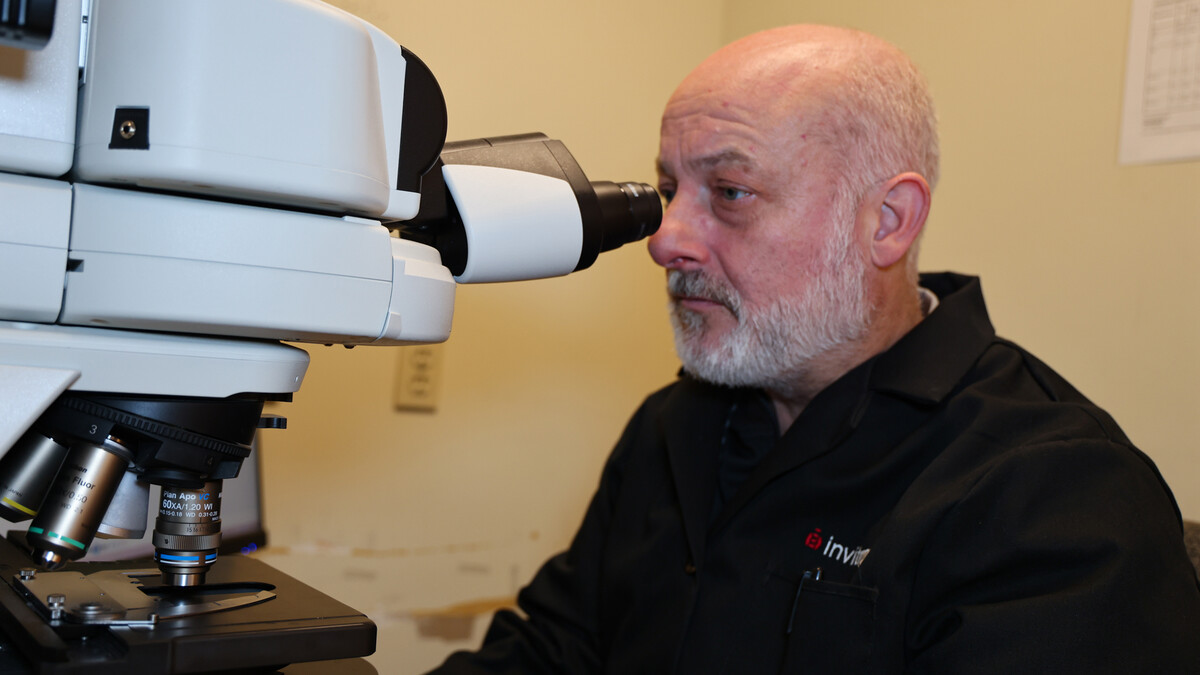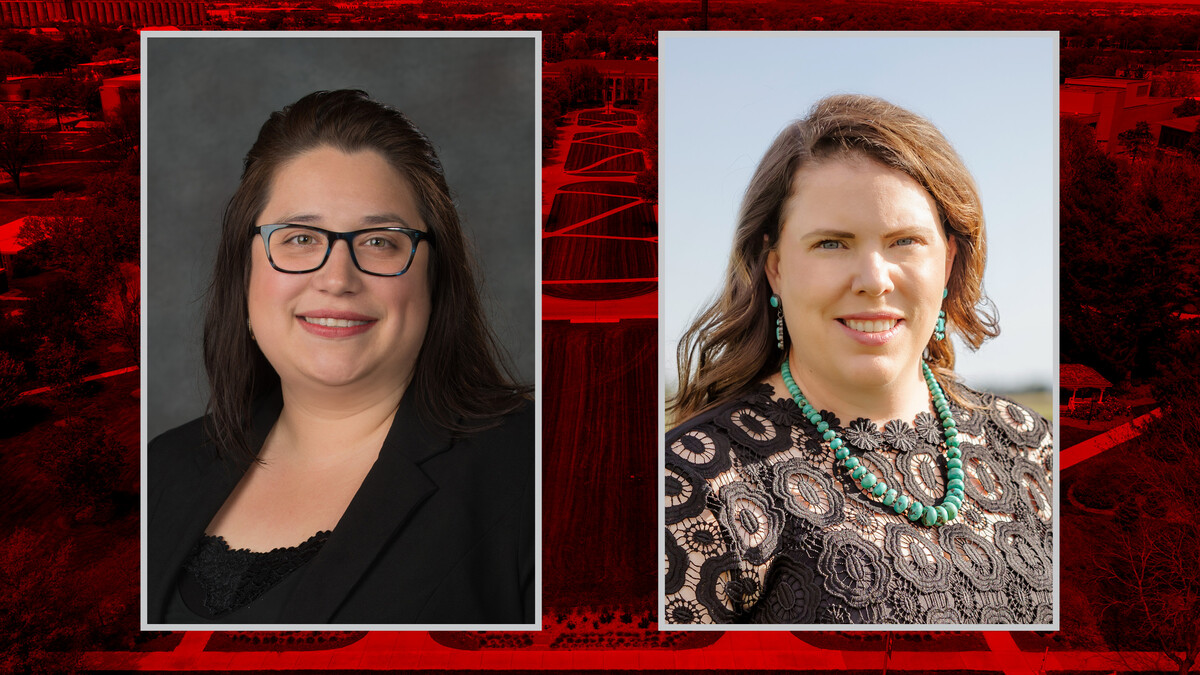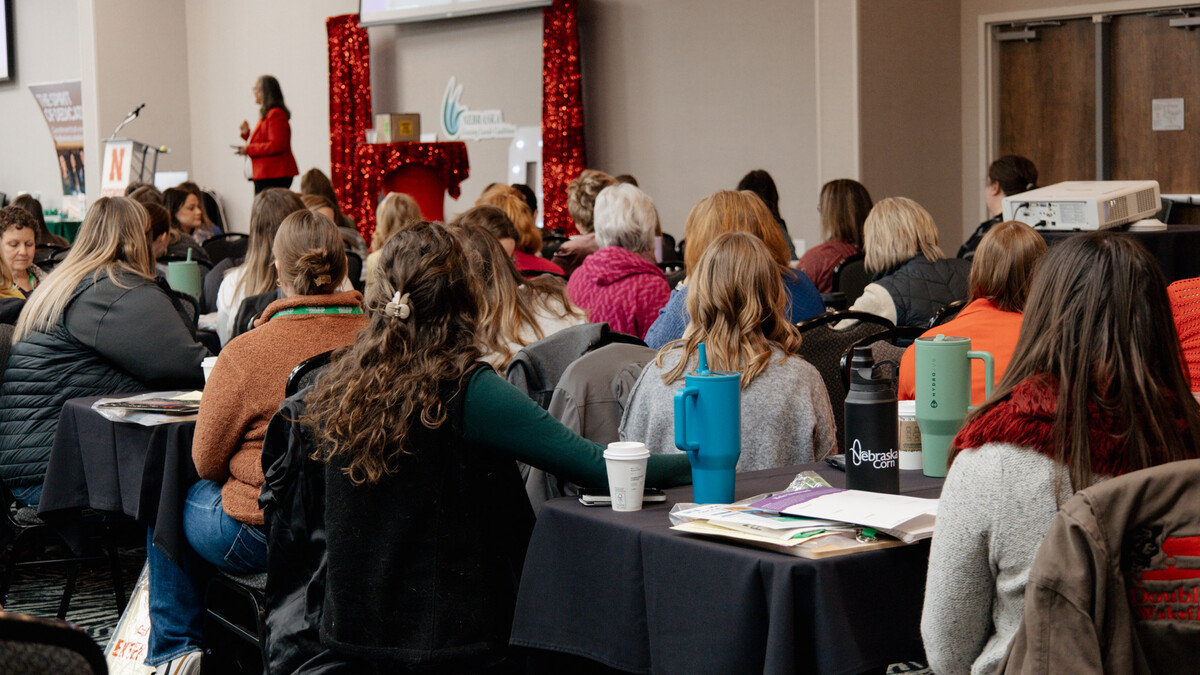April 25, 2014
LINCOLN, Neb. — More than 1,000 tons of plastic pesticide containers have been recycled as part of a more than 20-year University of Nebraska-Lincoln Extension program aimed at turning these potential threats to Nebraska's environment and landscape into useful products.
"In 2013, the program recycled about 35 tons of containers, adding to a running 22-year total of about 2.2 million pounds of plastic pesticide containers in Nebraska...which is well over 1,000 tons," said UNL Extension pesticide safety educator Clyde Ogg.
"We're going to keep adding on to that total as this very successful and collaborative program starts year 23," said Ogg.
The Pesticide Container Recycling Program recycles 1- and 2.5-gallon plastic pesticide containers and 15-, 30- and 55-gallon plastic crop protection chemical drums.
Ogg, who coordinates UNL Extension's Pesticide Safety Education Program, said, "These are farm and ranch pesticide containers that could otherwise end up stored and forgotten in barns or sheds or be improperly disposed of by casting them aside on creek banks or by burning them.
"The program's ethos has always been to provide a cost-effective, cooperative, and environmentally responsible way to properly dispose of and reuse these containers."
Plastic from the collected containers is turned into industrial and consumer products like shipping pallets, drain tile, dimension lumber and parking lot tire bumpers.
Details of recycling sites and program guidelines are online at http://pested.unl.edu/recycling.
"Teamwork and cooperation has kept this program viable and successful over many, many years," Ogg said, citing cooperation from UNL Extension educators and collection site managers statewide.
"The commitment of the people that increasingly understand that this program is a simple and effective way to care for our environment is incredibly valuable. Most of the container collection sites are at agricultural chemical dealerships or community recycling centers, which volunteer to take on this additional responsibility," he said.
The program accepts pressure-rinsed or triple-rinsed 1- and 2.5-gallon plastic pesticide containers. They must be clean and drained, inside and out. Caps, labels, booklets and slipcover plastic labels, which can't be recycled as part of the program, must be removed. Those items should be disposed of as normal, solid waste. Glued-on paper labels can be left on the container. Rinsate should be returned to spray tanks.
Of the 32 sites involved in the program, 18 accept 15-, 30- and 55-gallon plastic crop protection chemical, crop oil and adjuvant drums.
Drums must be thoroughly rinsed before delivery to collection sites and should not be cut or opened in any way. Mini-bulk, saddle tanks and nurse tanks, which can be made of fiberglass or plastics not compatible with the recycling program, are not accepted.
Eight sites collect year-around, 12 collect May through August, eight collect on specific dates, and four are by appointment only.
Program funding is by a national coalition of agri-chemical manufacturers through the Agricultural Container Recycling Council, Lexington, Va.
County collection sites, by category, are listed below. Sites accepting 15-, 30- and 55-gallon plastic drums are noted.
Year-round collection sites:
Buffalo: Kearney Recycling Center, Kearney, Monday through Friday, 8 a.m. to 5 p.m.
Cuming: West Point Transfer Station, West Point, Monday through Friday, 8 a.m. to noon, 1 to 5 p.m., Saturday, 8 a.m. to 4 p.m.
Dawes: Solid Waste Association of Northwest Nebraska, Chadron, Monday through Friday, 8 a.m. to 5 p.m., Saturday, 8 a.m. to 4 p.m.
Knox: Central Valley Ag, Bloomfield, Monday through Friday, 8 a.m. to 5 p.m.
Lincoln: City of North Platte Transfer Station, North Platte, Monday through Saturday, 7 a.m. to 4 p.m.
Scottsbluff: Gering Landfill, Gering, Normal Business Hours; accepts drums
Washington: Washington County Recycling Center, Blair, Saturday, 8 a.m. to noon, accepts drums.
May-August collection sites:
Antelope: Central Valley Ag, Neligh (no drums) and Royal (accepts drums)
Burt: Helena Chemical Company, Oakland; Cass: Midwest Coop-Greenwood, Greenwood, accepts drums
Dakota: Central Valley Ag, South Sioux City, accepts drums
Dawson, All Points Cooperative, Lexington, accepts drums
Gage: Southeast Nebraska Cooperative Agronomy Plant, Beatrice
Hamilton: Cooperative Producers Inc. (CPI), Giltner
Holt: Central Valley Ag, O'Neill; accepts drums
Kearney: Cooperative Producers Inc., Wilcox
Madison: Central Valley Ag, Tilden, accepts drums
Otoe: Midwest Farmers Cooperative, Nebraska City and Syracuse, accepts drums
Saunders: Frontier Cooperative, Mead, accepts drums, Reid's Farmacy, Ashland.
Sites collecting pesticide containers on specific days:
Cass: Midwest Farmers Coop, Greenwood, July 1-31, 8-5 p.m. Monday through Friday, accepts drums.
Clay: Cooperative Producers Inc. (CPI), Sutton, August 14-15, accepts drums.
Dakota: Central Valley Ag, South Sioux City, June and July, Wednesdays, 11 a.m. to noon, accept drums.
Dixon: Central Valley Ag, Newcastle, May 9 & 23, June 6 & 13, July 3 & 17, August 8 & 22, 8 a.m. to noon.
Hamilton: Aurora Corp, Aurora, July 21-25, 8-5 p.m.; Cooperative Producers Inc. (CPI), Giltner, July 31 and Aug. 1, 8-5 p.m.
Lancaster: Midwest Farmers Cooperative Co., Bennet, July 25, 9 a.m. to noon and Midwest Farmers Cooperative, Waverly, June 27, 9 a.m. to noon; both sites accept drums.
Otoe: Midwest Farmers Coop, Nebraska City, July 28 thru 31, 8-5 p.m., accepts drums.
Sites collecting pesticide containers by appointment only:
Burt: Tekamah Transfer Station, Tekamah, 402-374-2929, accepts drums
Cass: Wiles Bros. Fertilizer, Inc, Plattsmouth, 402-298-8550, accepts drums
Custer: Custer County Recycling Center, Broken Bow, 308-870-0313; accepts drums
Gage: Crop Production Services, Beatrice, 402-223-5102, accepts drums.
Clyde L. Ogg
Pesticide Safety Education Program Coordinator
UNL Pesticide Safety Education Program
Agronomy and Horticulture
402-472-1632
Pierce J. Hansen
Extension Assistant
UNL Pesticide Safety Education Program
Agronomy and Horticulture
402-472-1632
Steven W. Ress
Communications Coordinator
Nebraska Water Center, part of the Robert B. Daugherty Water for Food Institute
402-472-3305
sress1@unl.edu







